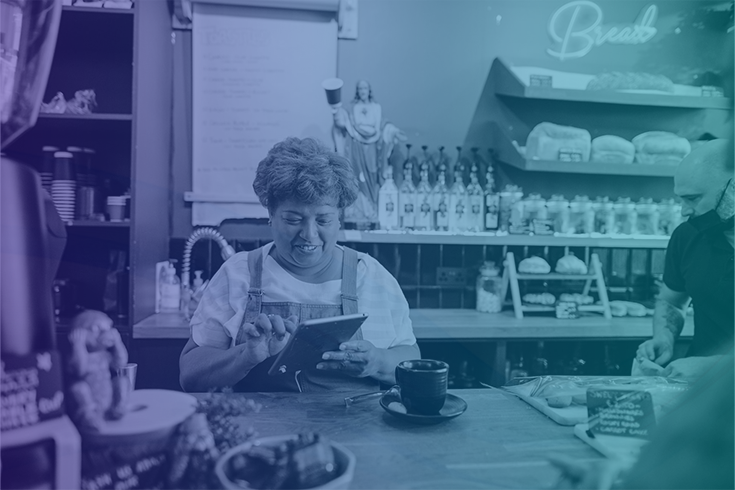The Innovation Caucus has just published a report exploring factors impacting development of the healthy ageing market in the UK. This study was commissioned by UKRI’s Healthy Ageing Challenge, which is delivered jointly by ESRC and Innovate UK. We are very grateful to the project sponsors at UKRI and advisors from the Social Behavioural and Design Research programme of the Healthy Ageing Challenge for their input into this research. Download the full report here.
Our research situates innovation in the healthy ageing domain in the UK and develops insights about its sustainability and growth potential. The aim is to provide recommendations about how to contribute to evolving policy development and programme delivery under UKRI’s Healthy Ageing Challenge, by connecting business, universities, local governments, social welfare services, and social enterprises. We focus on the geographical and social landscape of ageing and assess the potential to stimulate innovation clusters as a mechanism to support and grow activities in the healthy ageing domain. Investments made through the Healthy Ageing Challenge over the past 5 years have built a strong foundation. This study explores whether a place-based clusters approach is the right next step, inspired by other programmes that have sought to multiply the impact of investments by focusing on increasing dynamism in specific places. For our analysis, we worked with glass.ai, a company that has developed a new AI capability that reads and understands the web’s content at scale about businesses, people, and other areas. Using this data, we were able to map healthy ageing activities in the UK to determine if there were any meaningful instances of spatial clustering that could inform a cluster-led approach.
Key findings from both the glass.ai data and the Manchester case study demonstrate the diversity of activities assembled under the healthy ageing umbrella and the challenges this poses for innovation and innovation policy. The data confirms that healthy ageing can be considered a hybrid domain; that is, one that is characterised by economic actors involved in a wide diversity of industries (from manufacturing to healthcare to housing to industrial design), but that also has a wide variety of types of actors involved in innovation (such as social enterprises, governments, researchers, and firms). This means that clustering dynamics are weak and difficult to detect in economic data. However, our case study demonstrates that there are interesting place-based innovation dynamics beyond local specialisation.
Our case study of the Greater Manchester Combined Local Authority (GMCA) area did find evidence of developed, evolving, and synergistic networks between different types of actors in support of commercial activities, social outreach, research projects, and public policy development and implementation. However, the opportunity for knowledge spillover and the development of positive externalities such as collective resources was limited, and therefore did not suggest a traditional cluster was emerging. Furthermore, innovation in this space was different than in more market-oriented contexts and focused on using technologies and new approaches to better understand, track, and reach older populations. This involved finding ways to influence behaviours in older people (e.g., to increase social engagement, mobility, cognitive longevity, etc.), and ensuring that their voices could effectively feed back to stimulate changes in the environment that they inhabit. Supporting and enhancing these kinds of evolving place-based networks and initiatives may have greater impact on achieving progress in the seven healthy ageing themes than existing strategies of targeted support for market innovations. However, it requires a different understanding of innovation and developing a clearer set of priorities for public support.
We have shown that a place-based model of public intervention in a hybrid domain should focus on supporting and strengthening ecosystems that enable both social and market innovations. This supports the movement already underway in UKRI to recognise the value of social innovation as a legitimate and impactful focus of innovation support. A series of recommendations around core themes emerged from our analysis of the glass.ai data and the Manchester case study, reaffirming how complex the healthy ageing domain is nationally and locally:
- Connecting the commercial and social sectors
- Creating synergies with science
- Encouraging global age-inclusivity
- Targeting skills and training gaps
- Focusing on complementarity, not competition, in place-based support
- Recognising opportunities, and pitfalls, in future challenges
- Supporting and linking centres of excellence around the country
Our work affirms the UKRI Healthy Ageing Challenge’s direction of travel in recognising the necessity for social innovation alongside market innovations. Our research has shown that strengthening the healthy ageing domain should involve supporting more than just firms and social enterprises, but potentially expanding to encompass ideas, objectives, and initiatives that rely on innovation to generate impact defined more broadly to include social benefit. Considering design, behavioural sciences, technology, health and care in the healthy ageing landscape will continue to play a key role in converting policy commitments into a thriving domain with social and economic benefits.
Healthy Ageing is a hybrid domain, where processes such as networking behaviour, governance, anchor assets, shared knowledge bases, partnerships, or knowledge spillovers differ from the typical model for innovation ‘clusters’. Therein lies the challenge, but our findings, advancing understanding of place-based and other factors determining healthy ageing in the UK, shed light on the potential for innovation in this fascinating domain.
